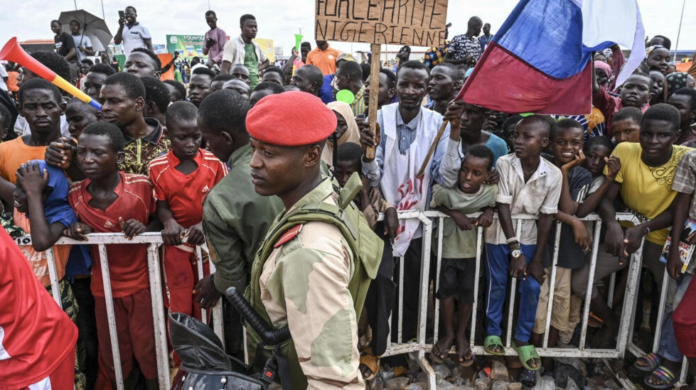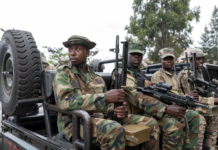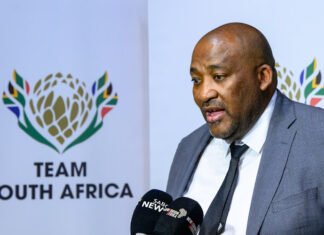Here are some recent coups in West Africa that affected France directly.
Niger
In July 2023, Niger’s presidential guard members detained President Mohamed Bazoum inside his palace. They appeared on national television saying they were seizing power to end the “deteriorating security situation and bad governance.”
Days later, the junta named Abdourahamane Tiani, the chief of the presidential guard, to be the new head of state, raising fears about the security of a region in which Niger has been a crucial partner of Western powers working to control insurgencies linked to al Qaeda and the Islamic State.
The main West African bloc ECOWAS has been trying to negotiate with the coup leaders but said it was ready to send troops into Niger to restore constitutional order if diplomatic efforts failed.
Niger has authorized Mali and Burkina Faso’s armed forces to intervene on its territory in case of an attack.
Burkina Faso
In January 2022, Burkina Faso’s army ousted President Roch Kabore, blaming him for failing to contain violence by Islamist militants.
Lieutenant Colonel Paul-Henri Damiba, the coup leader, promised to restore security, but the attacks escalated, weakening morale in the military forces and leading to a second coup in September 2022, when current junta leader Captain Ibrahim Traore took power.
Guinea (Conakry)
Colonel Mamady Doumbouya, head of special forces, deposed President Alpha Conde in September 2021. Conde had amended the constitution a year before to avoid constraints that would have stopped him from running for a third term, sparking violent unrest.
Doumbouya became interim president and promised a transition to democratic elections within three years.
ECOWAS rejected the deadline and issued sanctions, including the blocking of junta members’ bank accounts.
The military leadership later proposed starting the 24-month transition period in January 2023, but opposition parties argue it has done little to put institutions and a plan in place to return to constitutional governance.
Chad
Chad’s army assumed power in April 2021, after President Idriss Deby was murdered on the battlefield while visiting troops fighting rebels in the north.
According to Chadian legislation, the speaker of parliament should have been elected president. However, in the pretext of safeguarding stability, a military council intervened and dissolved parliament.
General Mahamat Idriss Deby, Deby’s son, was named temporary president and charged with overseeing an 18-month transition to elections. The unlawful transfer of power sparked riots in N’Djamena, which were put down by the military.
Mali
President Ibrahim Boubacar Keita was deposed by a gang of Malian colonels led by Assimi Goita in August 2020. The coup came after anti-government protests over deteriorating security, contested legislative elections, and corruption claims.
Under pressure from Mali’s West African neighbors, the junta agreed to hand over power to a civilian-led interim administration entrusted with overseeing an 18-month transition period leading up to democratic elections in February 2022.
The coup leaders, however, fought with the interim president, retired Colonel Bah Ndaw, and staged a second coup in May 2021. Goita, who had previously served as interim vice president, was appointed president.
After the military rulers announced a two-year transition to democracy and published a new electoral legislation, ECOWAS withdrew certain sanctions against Mali. To restore to constitutional governance, the country will have a presidential election in February 2024.















